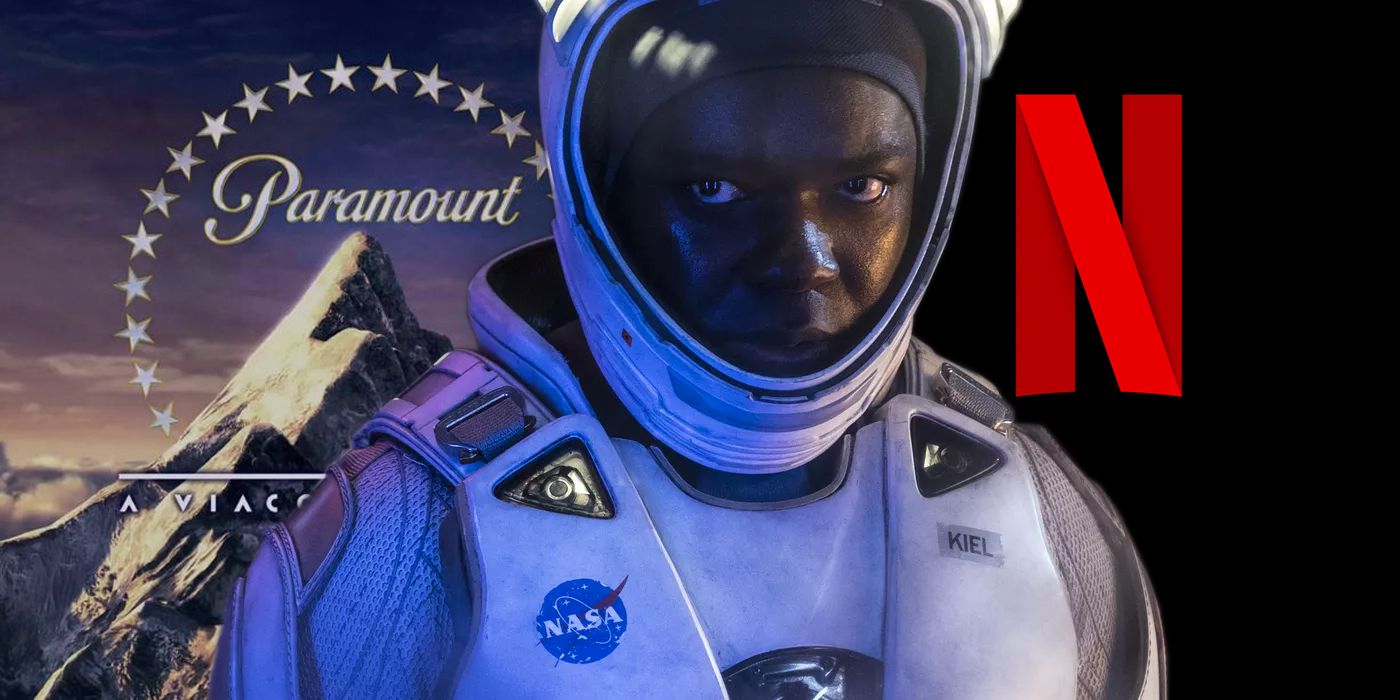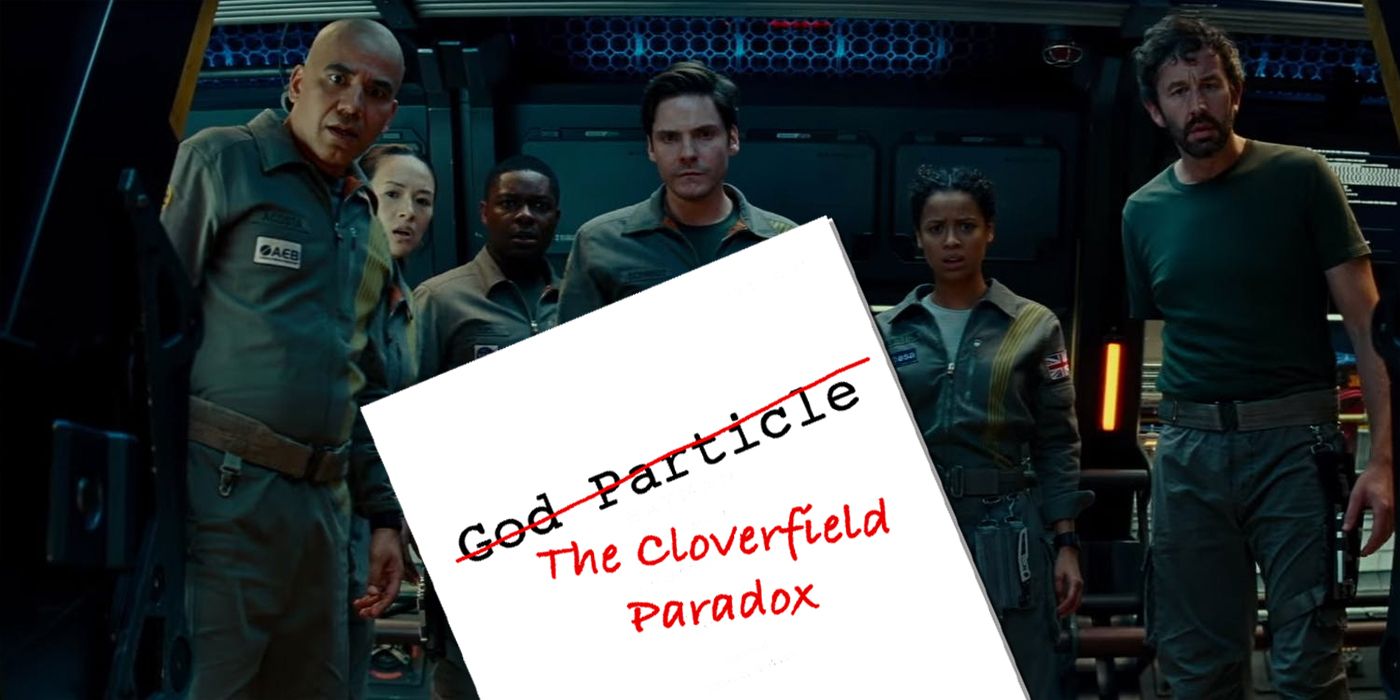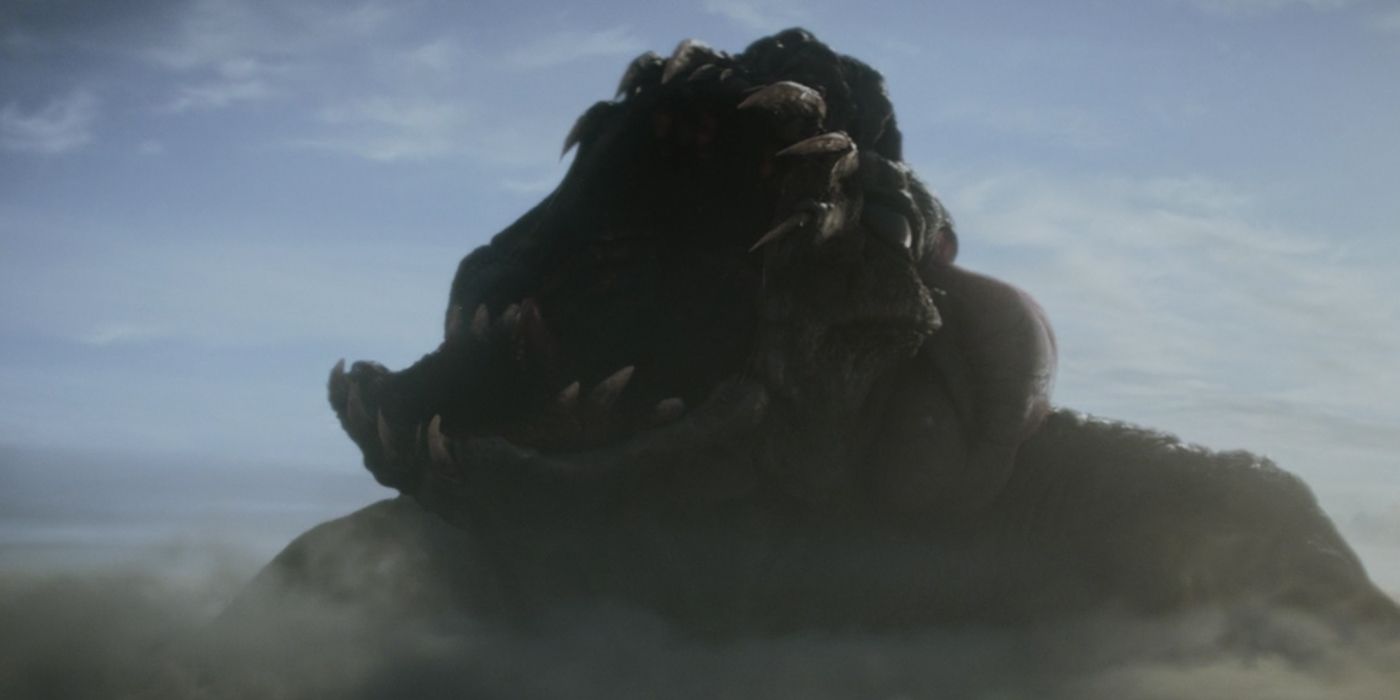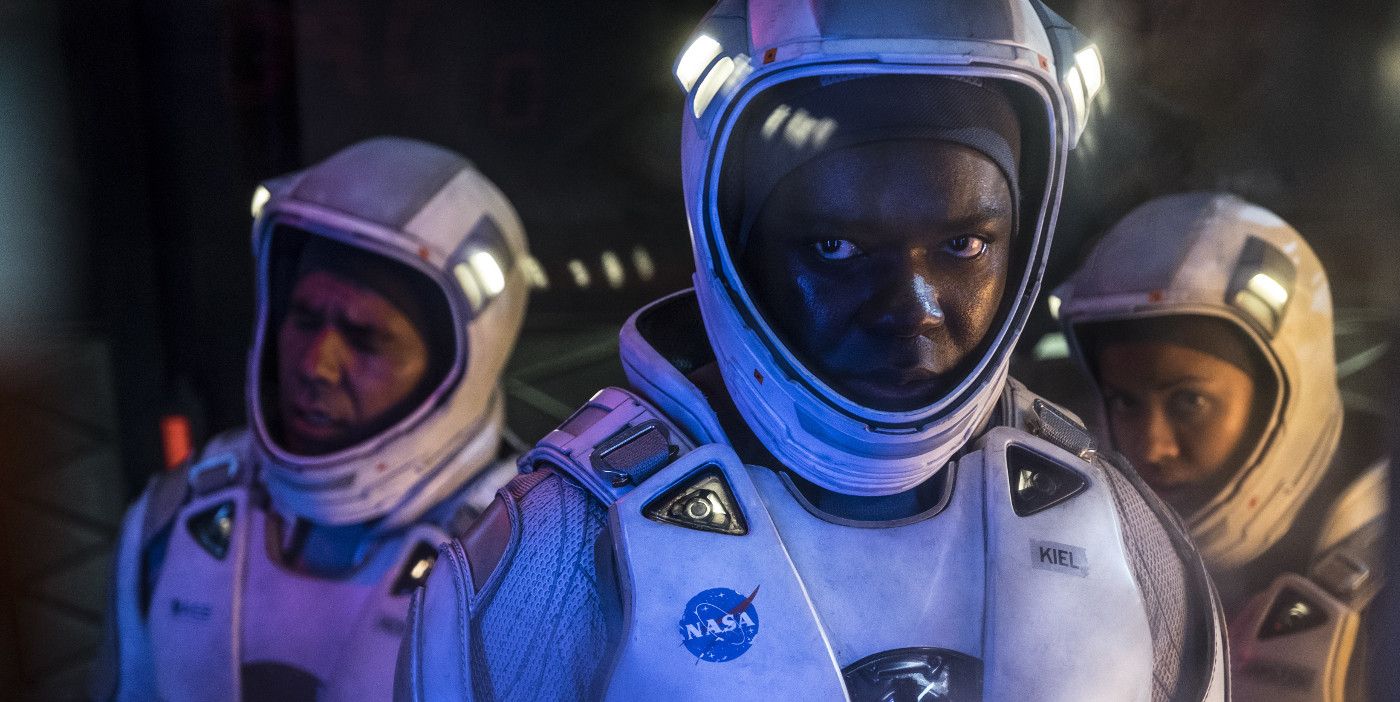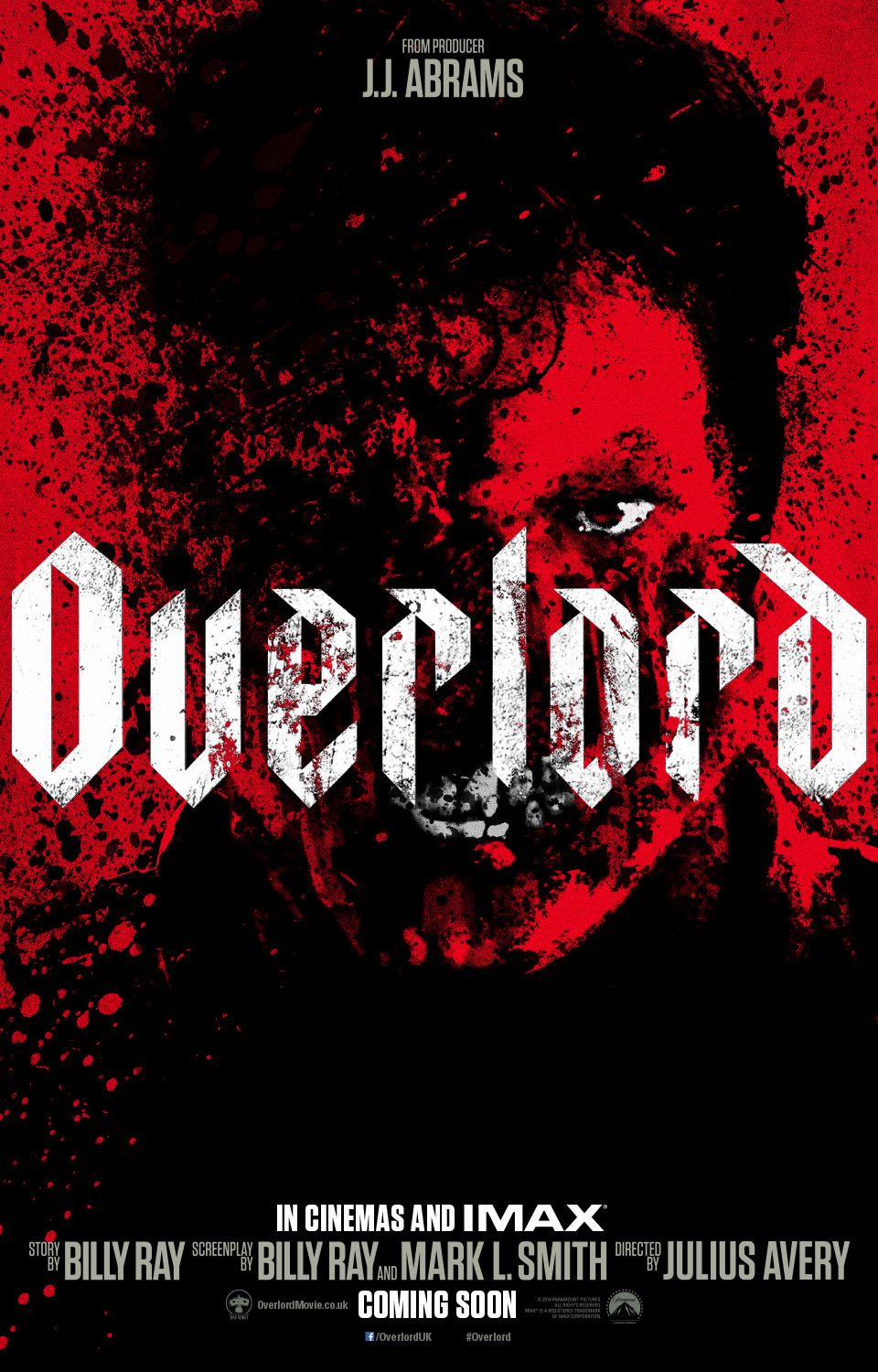Netflix and Paramount set the internet ablaze during this year's Super Bowl by announcing that the new Cloverfield film, The Cloverfield Paradox, would be available on the streaming service after the game. But was this a marketing coup or attempt to turn a film destined to be divisive into a guaranteed hit?Speculation had been rife for months about the status of the third Cloverfield, with a constantly pushed back release date. Then, suddenly, the first trailer dropped at the Super Bowl and The Cloverfield Paradox released straight onto Netflix. It's a bold move to say the least, and one of Netflix's biggest acquisitions a franchise movie with a dedicated fanbase and an enormous amount of curiosity surrounding it. There was no question over whether there was an audience for this thing, as proven by the immediacy with which everyone switched onto Netflix post-game to see it.Related: The Cloverfield Paradox Ending ExplainedThe immediate reaction here is to say that this is further representation of how streaming is breaking down the common means of distribution. And that's not entirely wrong either; Paramount giving Netflix the newest installment in what's become one of its hottest properties is a genuinely big deal. The studio had already established they were developing a relationship with the streaming service when it was revealed they sold them the international rights to Annihilation in December. But a major distributor going straight to on-demand in certain regions for something new is one thing, turning away from the multiplexes entirely for what was previously considered a tentpole sequel is a sign of legitimate change.But the flip-side to Paramount's dealings here is that they're using VOD as a way to circumvent critics and minimize bad press on something they couldn't justify releasing in theatres. Like 10 Cloverfield Lane before it, Cloverfield Paradox was once a completely different script being produced by JJ Abrams' Bad Robot Productions before it was decided to make it a Cloverfield film. However, unlike 10 Cloverfield Lane, whose tweaks were reportedly ultimately minor to its basic story and ideas, Cloverfield Paradox has been through an extended metamorphosis before getting to us.This Page: Cloverfield 3's Long Journey To The Small Screen
Cloverfield 3 Has Been In Development Hell For Years
Cloverfield 3 began life as God Particle in 2012 under Bad Robot and Paramount's InSurge label, written by Oren Uziel and to be directed by Julius Onah. Cameras didn't start rolling, however, for several years. Paramount eventually shuttered its InSurge wing in 2015 and some productions, like what would become 10 Cloverfield Lane, moved to the main body of the studio. In early 2016, it was confirmed God Particle was still a thing with Uziel credited as lead writer and Onah still taking the director's chair. A cast was assembled with a release date of February 2017 and sure enough, cameras starting rolling in June 2016 and finished in September of that year. So far so good then things start to take a turn.
In late 2016 God Particle went from a self-contained science fiction story to "2017's Cloverfield movie" on Paramount's release schedule. And from here, the movie somehow became stuck in post-production indefinitely. First release was moved from February 2017 to October 2017, then in July 2017 it was pushed back again to February 2018, where it stayed until January 2018 when it was shifted to April 2018, pre-empting the surprise Netflix drop. The initial delay was explicitly to allow for more time in post-production, but no official reason was given for the others, leaving the movie's status unknown while audiences waited for drips of information to come out.
Related: How All The Cloverfield Movies Connect
An exact timeline of what happened and when isn't going to surface anytime soon, but comments from Doctor Strange director Scott Derrickson and his frequent collaborator C. Robert Cargill hint Paramount were unsure of where to go with the film from a relatively early point. Talking on Twitter, Cargill and Derrickson state they once read an early version of and became interested in working on God Particle some years back:
Cargill emphasized that the script they read was very different to The Cloverfield Paradox and that the whole thing was rewritten to become part of the Cloverfield mythos. Derrickson then expressed surprise that Paradox is what became of the screenplay they saw. Given the time-scale of meaningful activity, it's doubtful he's the only one.
And thanks to Netflix, what could've been an even greater disaster has been averted.
Why A Netflix Release Worked Better For The Cloverfield Paradox
Reactions and reviews to The Cloverfield Paradox have been negative to say the least, and though there was interest, it's doubtful the film would have made good on its $45 million budget plus promotion cost if released conventionally on the back of comparable word-of-mouth. The box office is becoming an increasingly fraught space, with not a lot of room for something to gradually make its money back if its reputation is on shaky ground: last year's Justice League, the first live-action adaptation of the DC's flagship group, could barely overcome its own labored production issues and bad press; Darren Aronofksy's mother!, starring Jennifer Lawrence, bombed, as did Denis Villeneuve's Blade Runner 2049, which had reviews largely on its side but small mainstream recognition. It's harder and harder to guarantee people are going to make the trip to see something in the theater, especially for a not-so-good followup to what many consider a modern classic.
Related: The Cloverfield Paradox: The Most Brutal Reviews
Paramount selling to Netflix avoids literally all of that; it's believed the deal Paramount struck was for over $50 million, making the film immediately profitable. Conversely, while Netflix keep their actual finance and view numbers under strict lock and key, it's safe to say the agreement works for them too; the eyes on the service caused by the release is surely high. Like the equally-divisive Bright, which had a sequel greenlit days after it dropped, the unconventional release circumvents a lot of usual conditions.
Yes, there's a cynicism to that in that it further plays to the entrenching of critics as the opposition in some battle for what's good and bad in wider culture. But as a business move, it's a healthy one because it saves everyone from having a disaster on their resume. It's hard to get hired in Hollywood if you don't make money; very, very few creators have managed to cultivate a career that didn't involve them breaking the bank at least once. If you're a fresh face to the industry and your first major project bombs, it's not a good sign, doubly so if it was an otherwise healthy franchise.
The Cloverfield Paradox becoming a surprise Netflix release that instantaneously won back all its budget not only preserves the reputation of those who made it but allows them and Paramount to boast about one of the biggest publicity stunts in recent film history. Nobody has done what The Cloverfield Paradox just did. Most wouldn't even consider it. Can you imagine Solo: A Star Wars Story skipping theaters? Or the aforementioned Justice League? Them joining the "peasant ranks" of VOD is unthinkable, or it was, until a precedent of an eagerly awaited sequel hitting streaming at a well-strategized time was set. A movie thought lost in the haze of never-ending post-production has become one of the industry's most talked about power moves, and it's proven standard distribution, if the powers that be are unsure about it, isn't the only way forward.
The Super Bowl is the biggest public ad-block of the year. This was a now or never moment and Paramount nailed it. No, it hasn't spared their film getting ravaged online, but it's spared them from having a box office bomb in one of their leading series. They've confirmed that Cloverfield 4, currently titled Overlord, will go back-to-basics as a theater release. Sure The Cloverfield Paradox was basically œdumped onto Netflix, but if nobody loses, then what's the issue? The real question now is whether more studios follow suit in the future. Since we're short a dimension-hopping space station, we'll just have to wait and see.
Next: Cloverfield Paradox: Easter Eggs & Movie Connections

